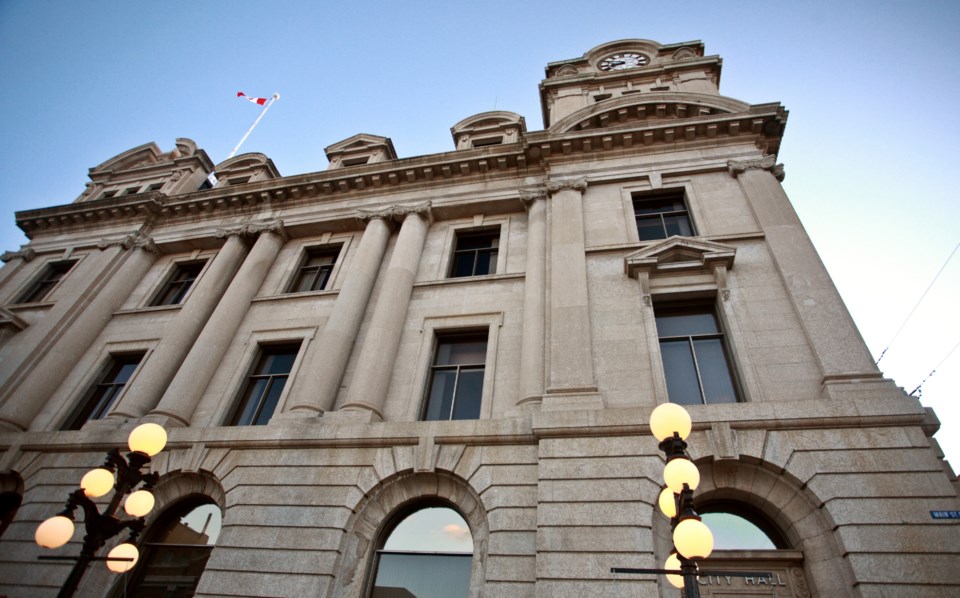City council had questions and concerns about an application city administration intended to submit for $24 million through the federal Investing in Canada Infrastructure Program (ICIP), during the Feb. 10 regular council meeting.
Coun. Chris Warren wondered why the council report mentioned borrowing when that funding was already identified in the 2020 budget. He assumed that if the grant funding was successful, that would reduce how much was needed in the capital budget.
Money is still being allocated to Moose Jaw, but the provincial government — which distributes the ICIP funding — now wants municipalities to submit applications for projects, explained finance director Brian Acker.
City administration still anticipates approval of those projects, but the process will be delayed by three months as the province reviews the applications. The municipality would be ineligible for the money if worked on the pumphouse/reservoir project prematurely, he continued.
“The pumphouse and pool were always contingent on grant funding. If we were not successful with that grant funding, we would have to look at other funding such as borrowing (since city hall doesn’t have that $24 million on hand),” said Acker.
Being selective with projects
During budget discussions, council submitted applications for federal funding for the Moose Jaw Municipal Airport Authority and Buffalo Pound Water Treatment Plant, Acker told Coun. Brian Swanson. If these projects are successful in receiving funding, they will not affect Moose Jaw’s ICIP funding.
Swanson disagreed with that assessment, pointing out the federal government issues funding on a riding by riding basis.
“Moose Jaw-Lake Centre-(Lanigan) riding probably hits the list of the 10 most irrelevant ridings in federally. The idea that we’re just going to receive all kinds of money for everything we submit — I don’t think has been borne out in the past and I don’t think will be the case here,” he said. I think we have to be very selective in what we put forward as applications … .”
Hope for success
Since the previous applications for the pumphouse/reservoir and pool failed, Coun. Heather Eby wondered what gave city administration hope that this second application would succeed.
“There is some level of confidence that we have the potential to be successful with this intake,” Acker said, noting the city manager and mayor have spoken with federal and provincial officials. “It certainly isn’t zero (per cent) and it’s certainly not 100 per cent, but I believe there is some belief we can be positive with (our submitted projects).”
Using a hockey metaphor, Mayor Fraser Tolmie said council would miss the opportunity for federal money if it didn’t at least take a shot. He pointed out that council knew transportation funding was available during the budget discussions, which it pushed to use for the cast iron program.
Keep the old pool
While city administration planned to apply for pool funding, Swanson argued council should stick with the Phyllis Dewar Outdoor Pool for as long as possible. He preferred to continue upgrading the pool instead of abandoning it. Council would also likely lament its loss since it is a piece of cultural heritage.
This pool is near its end, so now is the time for a new one since Moose Jaw could be without a pool if council waits any longer, said Coun. Crystal Froese. Council should “shoot as many shots” as it can to acquire funding for it.
“This is a really important piece in our community. It’s important for Crescent Park to have a working pool and not a big open concrete space,” she added.
The pool does have a big effect on the community and it would be missed, agreed Eby. But if council waits until it fails before applying for funding, it could discover there is no money available.
City administration is submitting four projects under the transit funding banner for $13 million ($5.2 million via ICIP), including the cast iron water main program, the fluoridation equipment and building program, a solar initiative program, and the purchase of three transit buses.
Cast iron program
The municipality keeps telling residents that the cast iron program will take 20 years, which means replacing four kilometres of pipe a year, but Swanson pointed out only 2.2 kilometres of pipe were replaced last year. If this program goes longer, council could jeopardize the water distribution system since some pipes would be more than 120 years old before they are replaced.
He preferred to see all the money from the transit funding be directed to the cast iron program and the other three transit projects be eliminated.
City administration might have difficulty receiving approval for one massive project, said Acker. Furthermore, project logistics would be a problem since the engineering department has committed $10.9 million to the cast iron program this year and $9.1 million in 2021.
The fluoridation and solar projects were approved in the 2020 budget, while grant money was to be their main source of funding, he continued. The purchase of three new transit buses is supposed to occur in 2022, so the goal was to apply for the funding now and have it for those years.
“As community leaders, we do have to address all the areas of the community. The cast iron is certainly a part, but so are other things we are doing,” added Acker. “We have a balancing act to do in terms of your priorities.”
The next regular council meeting is Feb. 24.




